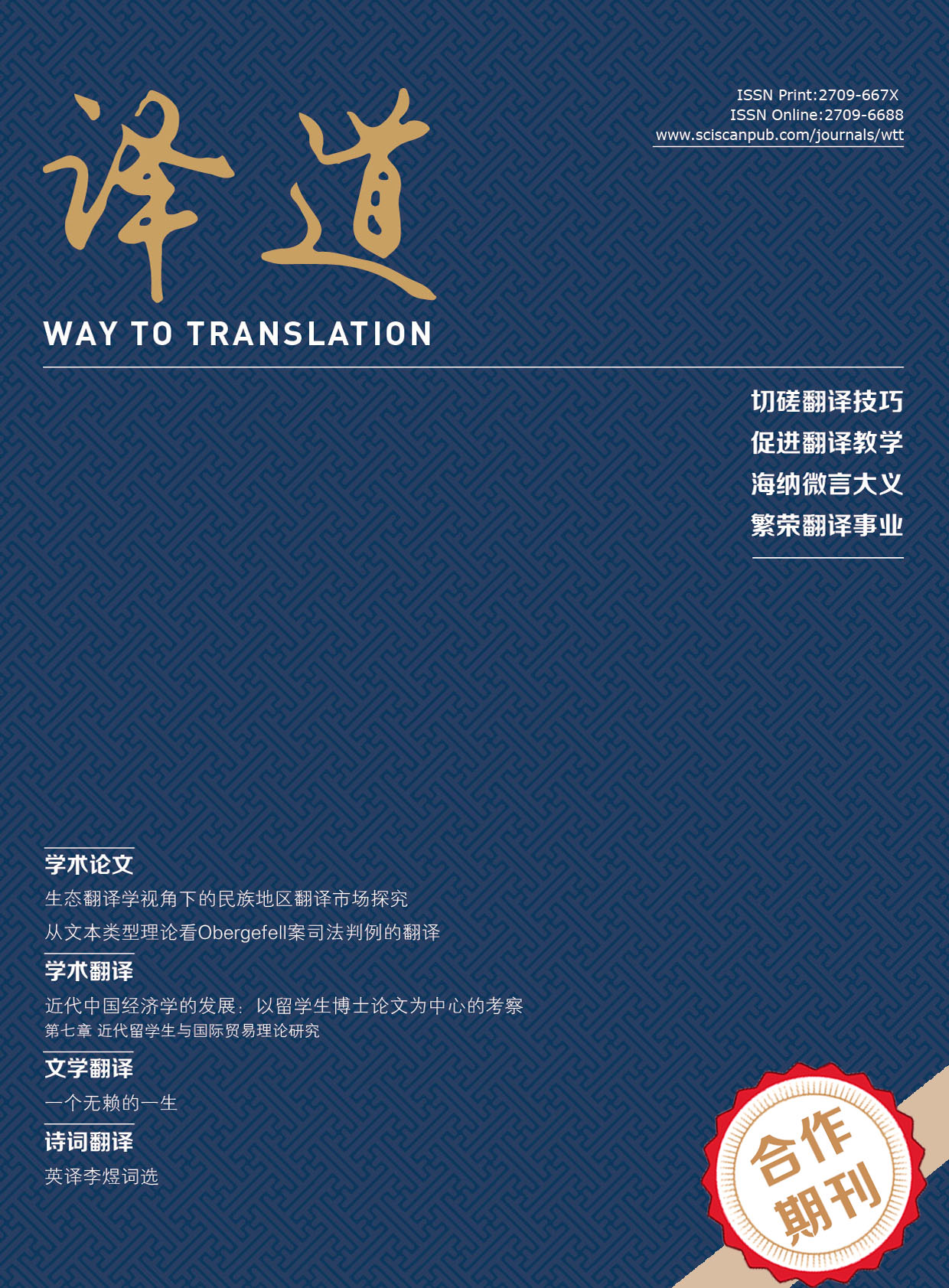Way to Translation
ISSN Print: 2709-667X
ISSN Online: 2709-6688
Contact Editorial Office
Subscribe to the latest published information from SCISCAN
操纵译者与译者操纵
Manipulated Translators and Translators’ Manipulation
- Authors: 彭浩
-
Information:
武汉轻工大学外国语学院,武汉
-
Keywords:
Translator; Manipulate; The maximum dynamic compromise译者; 操纵; 最大动态妥协
- Abstract: In the middle and late 20th century, western translation studies developed with diversified trends, and there was a shift in the translation research, breaking through the traditional linguistic model and became a cultural mind-set. Lefevere’s translation theory provides a new perspective and viewpoint for the study of translation, which refers to that translators are mainly manipulated by poetics, ideology and patronage; however, translators are not only manipulated in the process of translation, they are also manipulators to control the source language text and the target language text as well. The task of translators is to seek a compromise among the many factors. Every translation work is the maximum dynamic compromise and embodiment of such compromise. Translation is also a struggle. There must be a compromise in the struggle, and there is constant struggle in the compromise. In the process of this struggle and compromise, translation can be continuously perfected. 20 世纪中后期,西方翻译研究呈现多元化的趋势,翻译研究的方向发生了转变。它突破了传统的语言学模式而上升成为一种文化上的思维模式。勒菲弗尔的“翻译三要素”理论为翻译的研究提供了一个全新的视角和观点。按照勒菲弗尔的观点,译者主要受到诗学、意识形态和赞助人的操纵;但译者在翻译过程中并不是只受到操纵,译者同时也是操纵者,他不但操纵着原文,也操纵着译文。在翻译过中,译者要在众多因素中寻求一种妥协。每一部译作都是译者所维系的一种最大动态妥协,译作的产生便是这种最大态妥协的体现。翻译也是一种斗争,斗争当中有妥协,妥协当中又不断地斗争,在这一斗一协的过程中,才能使翻译不断日臻完善。
- DOI: https://doi.org/10.35534/wtt.0102003
- Cite: -
















